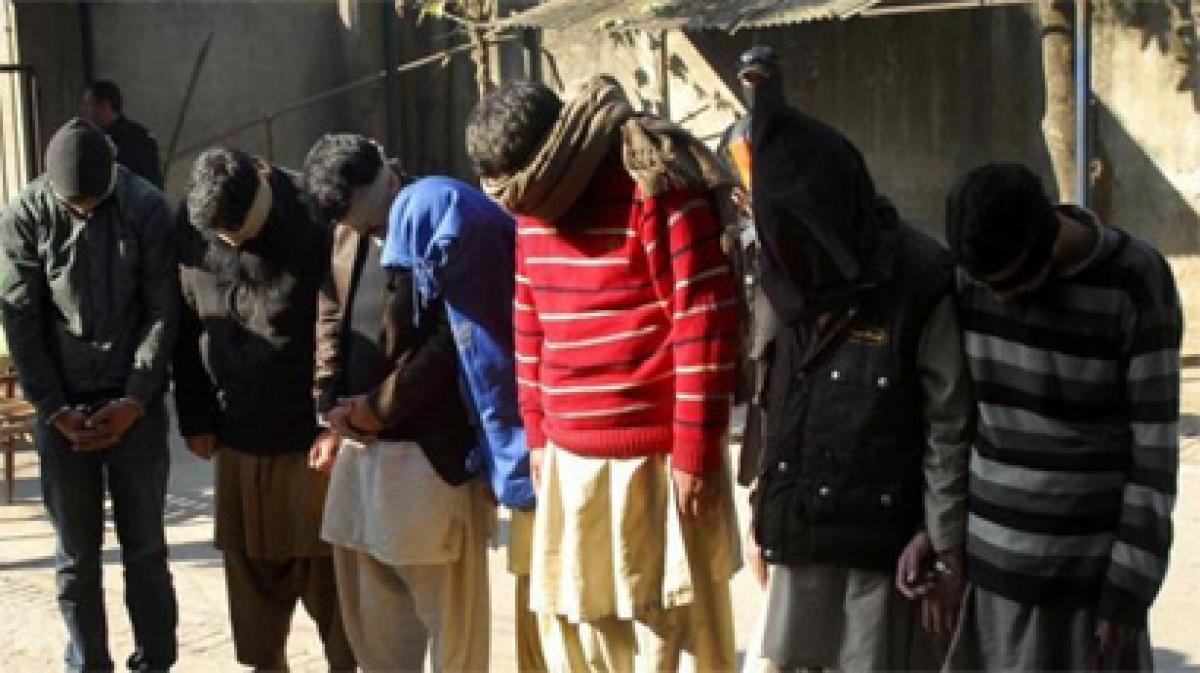Live
- Won’t back off from ‘Pharma Village’, says Telangana CM’s brother
- SC order will stop govts from arbitrary house razing: Cong
- AP assembly session: Govt. to introduce five bills today in house Dy. Speaker election at noon
- Reject BJP’s divisive politics in Maha: Uttam
- Travan Core Devasthanam Issues Guidelines for Ayyappa Devotees Visiting Sabari
- Independent candidate slaps election official
- SC parked Yogi’s bulldozer in garage forever: Akhilesh
- No ‘blame game’ over pollution issue: Mann
- 3 Odisha Police officers get ‘Dakshata’ award
- Punjab To Rebrand Aam Aadmi Clinics Following Central Funding Dispute
Just In

Pakistan’s powerful intelligence service has long acted as the “manager” of international jihadi forces and it may have been involved in the rise of the Islamic State, a leading US daily said on Sunday, in a stinging commentary on Pakistan’s “intervention” in a number of foreign conflicts.
Pakistan’s powerful intelligence service has long acted as the “manager” of international jihadi forces and it may have been involved in the rise of the Islamic State, a leading US daily said on Sunday, in a stinging commentary on Pakistan’s “intervention” in a number of foreign conflicts.
Underlining that experts have found “a lot of evidence” that Pakistan facilitated the Taliban offensive, an op-ed in the New York Times said, “This behaviour is not just an issue for Afghanistan. Pakistan is intervening in a number of foreign conflicts.”
“Its intelligence service has long acted as the manager of international mujahedeen forces, many of them Sunni extremists, and there is even speculation that it may have been involved in the rise of the Islamic State.”
It said that though Pakistan denies harbouring the Taliban and al Qaeda, and points out that it, too, is a victim of terrorism, “many analysts have detailed how the military has nurtured Islamist militant groups as an instrument to suppress nationalist movements, in particular among the Pashtun minority, at home and abroad.”
“Pakistan regards Afghanistan as its backyard. Determined not to let its arch rival, India, gain influence there, and to ensure that Afghanistan remains in the Sunni Islamist camp, Pakistan has used the Taliban selectively, promoting those who further its agenda and cracking down on those who don’t. The same goes for al Qaeda and other foreign fighters,” wrote Carlotta Gall, the North Africa correspondent for NYT.
It said there are reports that Pakistan had a role in the rise of the Islamic State.
“....it might come as a surprise that the region’s triumvirate of violent jihad is living openly in Pakistan,” Gall said as she listed out top terrorist leaders living openly in Pakistan.
“First, there’s Sirajuddin Haqqani, the leader of the Haqqani network, and second in command of the Taliban. He moves freely around Pakistan, and has even visited the Pakistani intelligence headquarters of the Afghan campaign in Rawalpindi,” she said.
Then there is the new leader of the Taliban, Mullah Akhtar Muhammad Mansour, who has openly assembled meetings of his military and leadership council near the Pakistani town of Quetta, the author said.
“Finally, al Qaeda’s leader, Ayman al-Zawahri, enjoys sanctuary in Pakistan -- one recent report placed him in the southwestern corner of Baluchistan. He has been working to establish training camps in southern Afghanistan,” Gall wrote.

© 2024 Hyderabad Media House Limited/The Hans India. All rights reserved. Powered by hocalwire.com







